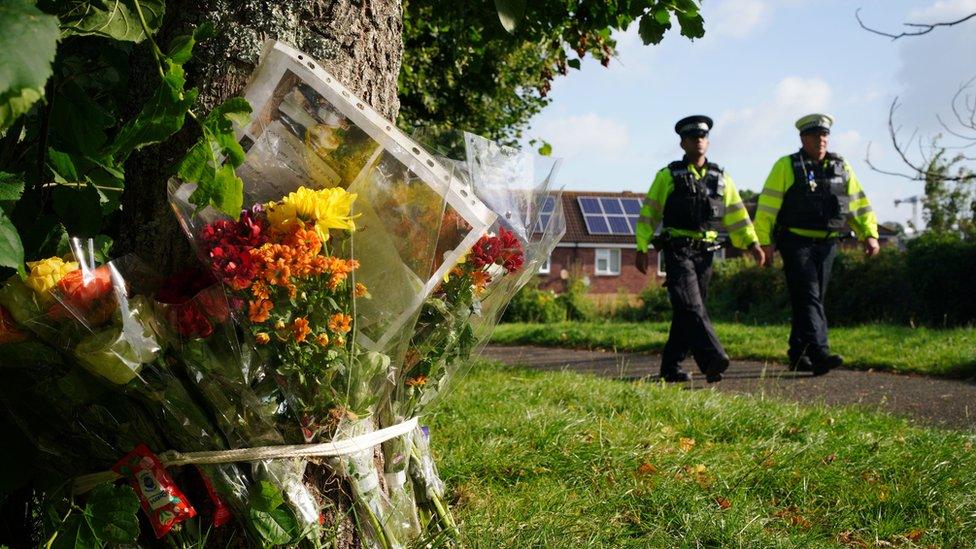Plymouth shootings: Gun review ordered by coroner still months away
- Published

Clockwise, from top left: Maxine Davison, Sophie and Lee Martyn, Stephen Washington and Kate Shepherd were killed in August 2021
A police review of gun licences ordered after five people died in a mass shooting will not be completed until October, forces have warned.
Devon and Cornwall Police was among those responding to a coroner following the inquest into the deaths of victims of the 2021 Plymouth shootings.
He had warned that weapons could remain in the hands of dangerous people.
Families of four victims said they were "alarmed" at delays implementing the coroner's "critical recommendations".
Jake Davison, 22, used a legally held shotgun to kill his mother Maxine Davison, 51, and four others in the Keyham area of Plymouth in August 2021 before shooting himself.
Three-year-old Sophie Martyn, her father, Lee, 43; Stephen Washington, 59, and Kate Shepherd, 66, were the others killed.
Davison's shotgun had been confiscated by police but returned to him shortly before the killings.
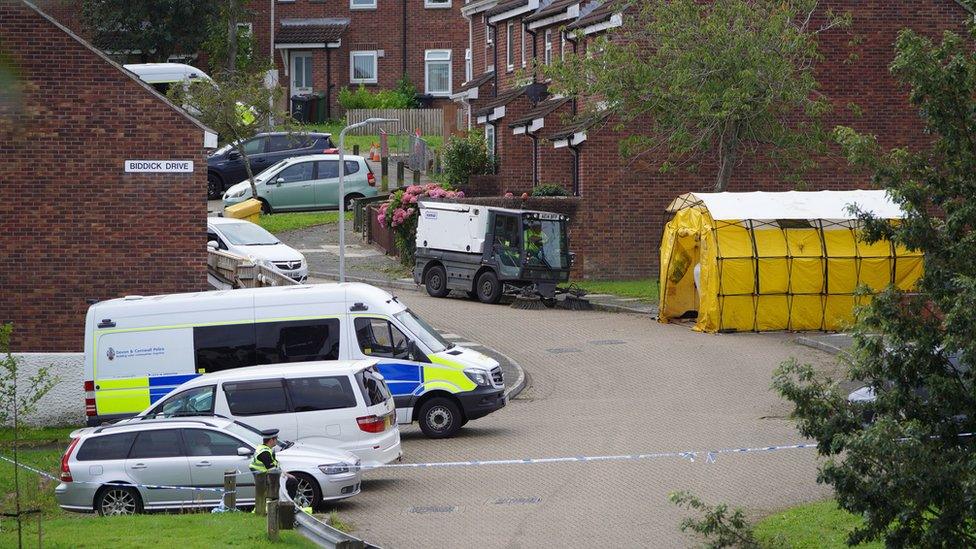
Jake Davison killed five people, including his mother Maxine, in the Keyham area of Plymouth
An inquest, which ended in February, found "catastrophic failure" at Devon and Cornwall Police.
After the hearing, senior coroner for Plymouth, Torbay and South Devon, Ian Arrow, wrote a series of prevention of future deaths reports, saying current gun laws were "at odds with public safety".
He wrote to Home Secretary Suella Braverman, Policing Minister Chris Philp, the Lord Chief Justice of England and Wales Sir Ian Burnett, the National Police Chiefs' Council (NPCC), every chief constable in England and Wales and the College of Policing, identifying areas of concern.
The recipients were legally required to respond within 56 days.
The Home Office, which is due to respond next week, said it agreed an extension with the coroner.
Luke Pollard, Labour MP for Plymouth Sutton and Devonport, said: "Britain's gun laws are broken. It is right that lessons are learnt, but tweaking a failing system won't prevent another tragedy like we saw in Plymouth.
"We need root and branch reform of our gun laws and efforts to restore trust in the ability of police forces to licence firearms safely."
'Matter of urgency'
Many of the forces said a police review of gun licences ordered by Mr Arrow, who warned weapons could remain in the hands of those who posed a danger, would not be completed until October.
Patrick Maguire, partner at law firm HCC, which represents Rebecca Martyn, mother of Sophie and widow of Lee, plus the Washington and Shepherd families, said in a statement on their behalf that they were "closely reviewing" the report's contents and would respond more fully when they had considered the reports in detail.
"We are deeply disappointed that the Home Office has not responded within the timescale presented," they said.
"We are also alarmed that the suggested delays in implementing critical recommendations made by the senior coroner puts lives at risk.
"We urge all the relevant agencies and authorities to address the recommendations as a matter of urgency to prevent further shootings on the streets of Britain... our priority is to ensure everything is done to prevent what happened to our loved ones happening to anyone else."
In a statement, a Home Office spokesperson said it thanked Mr Arrow for his reports and was "carefully considering the findings" after agreeing an extension to the deadline.
"Since the tragedy in Plymouth, the government has already taken steps to tighten firearms licensing, including introducing statutory guidance for the police, and requiring that applications will only be considered if they include medical information from the applicant's GP," they added.
'A danger to the public'
Mr Arrow asked all 43 police chiefs to conduct a further review of all gun licences where certificates had been seized, refused, revoked or surrendered and then approved over the past five years - the duration of a licence.
He said he was concerned a similar review requested of forces in August 2021 by then home secretary Priti Patel may "not reflect the accurate position".
The inquest heard how Devon and Cornwall Police later found issues with the cases it had reviewed, resulting in 10 licensees having their licences revoked and two surrendering theirs, and how another unnamed force had made nine decisions deemed unsafe.
Mr Arrow said it was "unlikely" mistakes were made by only two forces and warned "weapons may remain in the hands of individuals who pose a danger to the public".
In his response to the coroner, Devon and Cornwall Police's chief constable Will Kerr said following the shootings, his force had invested about £3m in its firearms and explosives licensing unit (FELU).
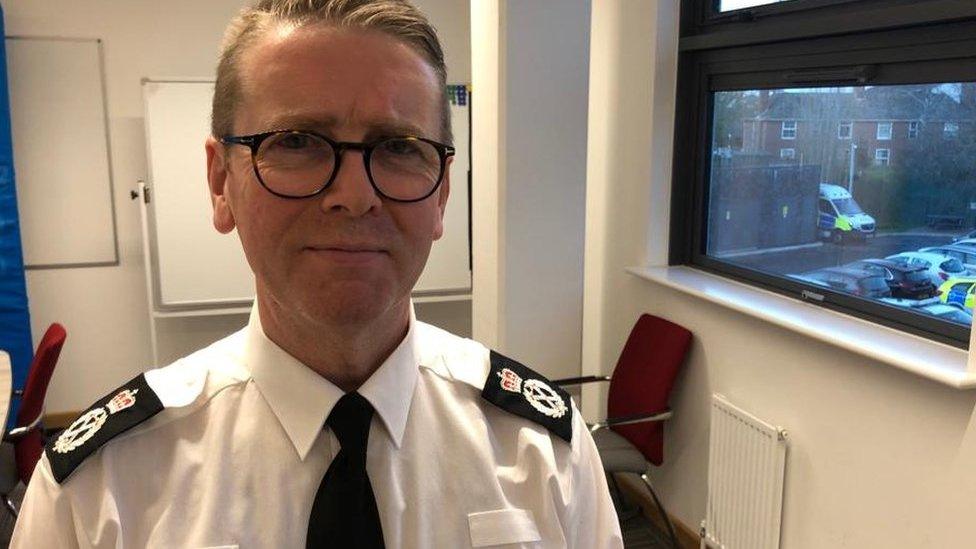
Devon and Cornwall Police Chief Constable Will Kerr said his force shared concerns raised by the families at the inquests
He said the force shared the concerns raised by the victims' families and believed the shootings and the lessons from them represented "a unique opportunity for enacting the comprehensive reform that is required".
He said Devon and Cornwall had completed a "full evaluation" of all such cases from January 2020 onwards and was "committed" to extending the review to include those dating back to May 2018.
Mr Kerr also told the coroner about other steps taken by the force, including:
A further review of licence-holders who met certain criteria, including having a crime recorded against them or their address
Auditing some of the other decisions made by those involved in Davison's case
Conducting its own peer review post-inquest and supporting the delivery of an independent inspection by His Majesty's Inspectorate of Constabulary and Fire and Rescue Services
He said the force would complete its review by October.
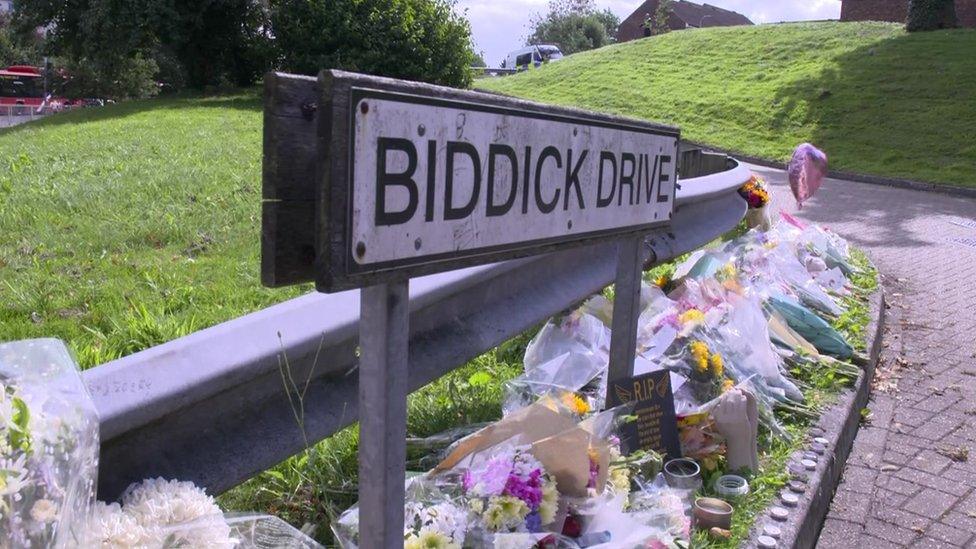
There was an outpouring of grief in the days that followed the shootings
Of the other chief constables who responded, more than half said it would take until October to complete their reviews.
Several said they would undertake part of the review requested, while one said they would not undertake a further review as it was deemed "not proportionate".
Another said its own processes were more effective than the review requested by the coroner.
'Urgent need' for national training
In his report, Mr Arrow criticised an "abject failure" to properly train police officers and police staff in firearms licensing decisions over nearly three decades.
Addressing every chief constable in England and Wales and the College of Policing, he said there was an "urgent need" to develop nationally-accredited training.
Chief Constable of the College of Policing, Andy Marsh, said the college was "currently developing significantly revised and updated Authorised Professional Practice (APP) on firearms licensing".
He said this and other national guidance would "underpin the development of a national training course".
While he gave no timescale, he said that once the training was designed, the APP would state chief officers should only delegate firearms licensing decisions to those trained to take them.
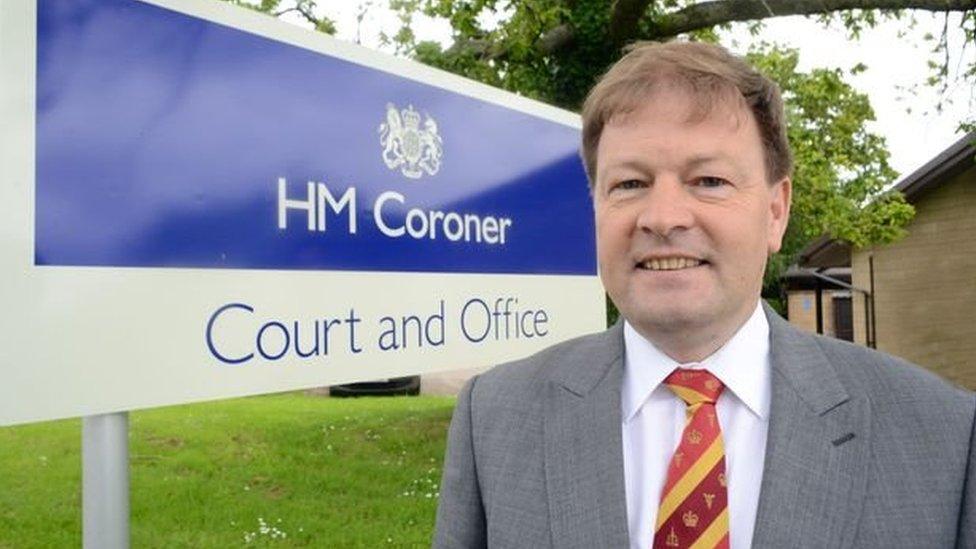
Ian Arrow heard the inquests into the deaths of the victims of the Plymouth shooting
In his response, Mr Kerr said his force "fully supported" the creation of a such a training programme and would ensure "the lessons from Keyham are integrated into the fabric of the course".
He said his force had "completely revised" training within the FELU since the shootings.
Signing off his 10-page letter, Mr Kerr added he hoped it showed the force was "committed to learning from this tragic incident".
He wrote: "I am determined that the lessons learned will not conclude with the writing of this response, and that we will continue to deliver improvements in the years to come, working with colleague to advocate for the changes that need to take place nationally."
In their responses, other chief constables outlined various arrangements for training in place.
'Committed' to national training
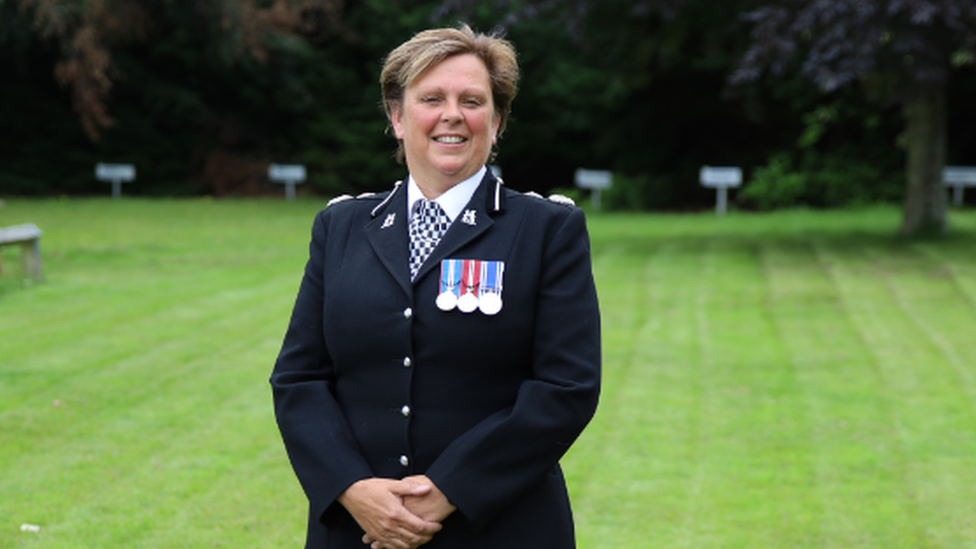
National Police Chiefs' Council lead on firearms licensing Debbie Tedds said work was ongoing on a national training programme
Chief Constable of Warwickshire Police Debbie Tedds, the National Police Chiefs' Council (NPCC) lead for firearms licensing, told the coroner she had encouraged all chiefs to "consider their position" with regard to reviews and reassured them they were "not being asked to duplicate past reviews or audits for the sake of it".
She said she told chiefs if they had already conducted a review or were "clear" their response to the home secretary in 2021 was accurate, they could respond to the coroner to that effect.She said she proposed forces aimed to carry out their reviews by 2 October and that the council was "committed to implementing" national training within the current business year.
Ms Tedds said she had secured £500,000 from the policing minister to support its implementation.
An increase in firearms licensing fees would enable the College of Policing to develop and coordinate such training, she said.
She said the NPCC was also holding a two-day event for firearms licensing managers and supervisors next week that Mr Arrow would be attending, looking at "promoting higher and more consistent standards" of police decision-making.
Judicial training
In his response, the Lord Chief Justice said there was no need for further training for judges who heard firearms licence appeals.
Sir Ian Burnett said no training course "could hope to cover everything a judge might encounter" but that judges could be expected to familiarise themselves with the law relevant to the case they were hearing.
Mr Arrow had said judges may need to be retrained in firearms licensing decision-making to help improve public safety after hearing that half of all decisions by Devon and Cornwall Police to revoke or not grant a licence were overturned in a crown court.
The coroner mentioned the case of a man given back his gun licence back after it was revoked by the force following his arrest for drink-driving and assaulting police.
Sir Ian said he was unable to confirm the proportion of licence refusals overturned on appeal and added the Keyham shootings were not the result of a licence holder who had their weapon returned following a crown court appeal.

Follow BBC News South West on Twitter, external, Facebook, external and Instagram, external. Send your story ideas to spotlight@bbc.co.uk, external.
- Published10 March 2023

- Published21 February 2023
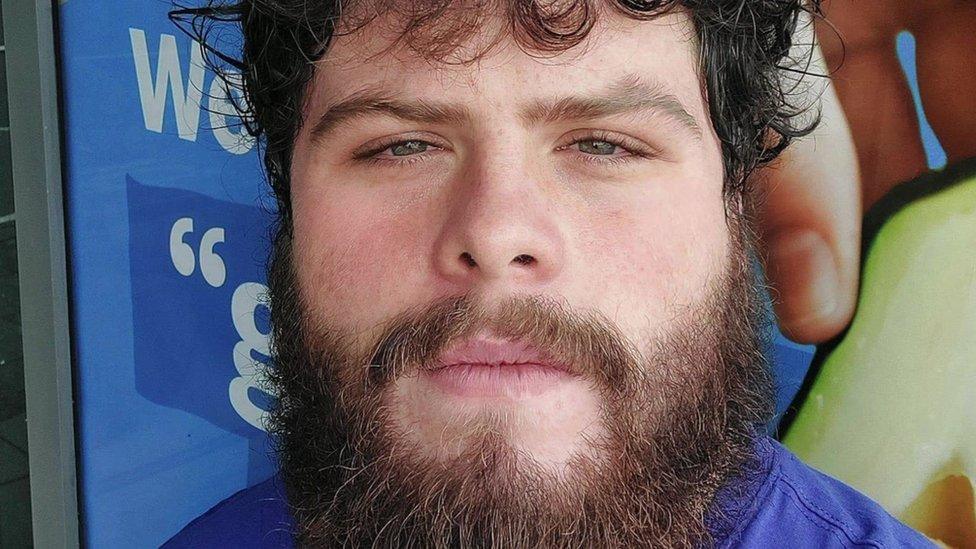
- Published20 February 2023
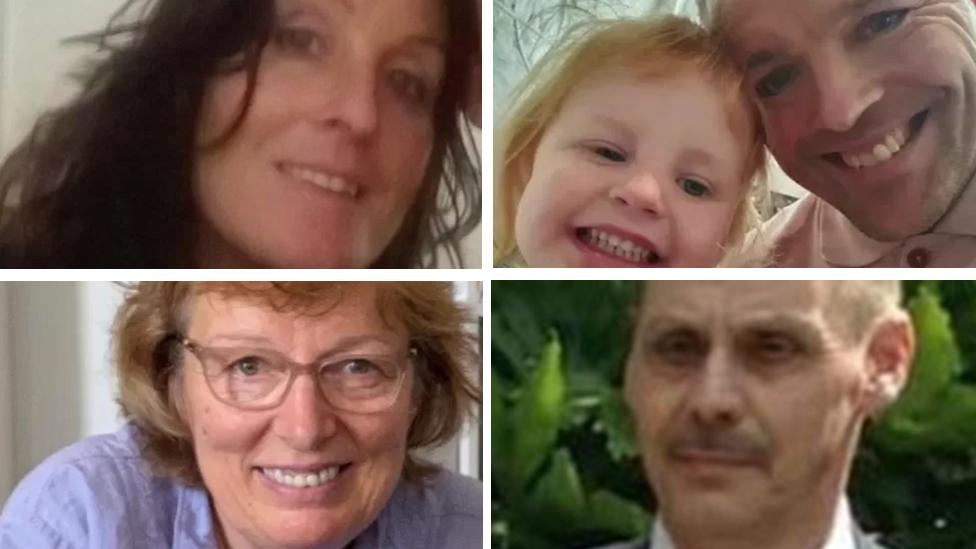
- Published20 February 2023
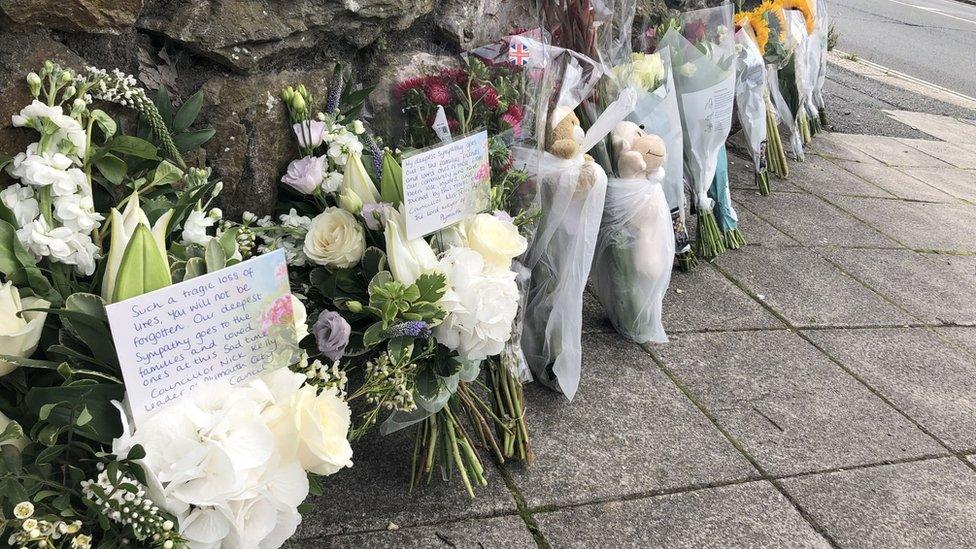
- Published14 February 2023
